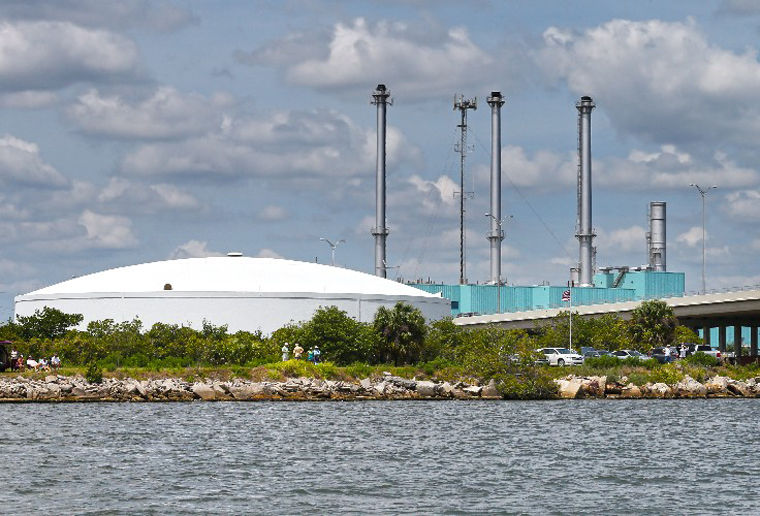
INDIAN RIVER COUNTY — The Florida Municipal Power Agency, which has Vero Beach locked into contracts for high-priced electricity which seem both unbreakable and to have no end, last year paid its 73 full and part-time employees an average of $131,506 per person in salaries and benefits, according to findings of the Florida State Auditor General.
The FMPA expenditure of $7.2 million for salaries and $2.4 million for benefits to staff an agency that provides electricity to a county where the average annual wage is $37,075 was only one of many outrages detailed in a 30-page document released by the Auditor General last week.
The audit, funded by the Florida Legislature, revealed a history of lavish spending, risky investments and immense debt – all funded by ratepayers of small and mid-sized municipalities like Vero Beach.
Even those county residents fortunate enough to have Florida Power and Light service at their homes or businesses instead of Vero electric still help fund the luxury travel, the golden parachutes and the bad fuel hedges of the FMPA.
That’s because most Indian River County buildings and many schools pay high Vero electric rates, a good chunk of which is wired to the FMPA each month.
The audit repeatedly points out that the FMPA’s high-risk investment and hedging boondoggles are “not consistent with industry practices” and that, with regard to expenses, “FMPA records did not always evidence the public purpose served for purchases of goods and services.”
It’s unlikely that, no matter how poorly the FMPA was managed, its governing board would fire the CEO even if Nick Guarriello was found to be guilty of some egregious behavior.
According to Finding No. 7 in the report, “The Chief Executive Officer’s employment contract provides for severance pay and postretirement benefits for life if he is terminated for cause.”
Councilwoman Pilar Turner meted out a steady drumbeat of pointed questions and harsh criticisms on the FMPA and its budget practices during the three years she served as Vero’s representative on its board, but Turner’s colleagues deemed that she didn’t play well with others, so they appointed newcomer Councilman Randy Old to take her seat.
Old, who has had a long career running and merging international corporations, said at the last City Council meeting that he was having a great deal of trouble understanding the FMPA’s complex finances, and that he would need to ask them to train him on how to read and understand the documents.
Who might Old ask for help? Perhaps he might seek guidance from Florida Municipal Electric Association Executive Director Barry Moline, the FMPA’s foremost front man and propaganda- meister.
While Vero Beach has been fighting these past few years to get out of the electric utility business, Moline has been the chief villain in the saga as head of the trade organization tasked with promoting government-owned utilities by lobbying and, at times, by guerilla politics.
Vero for decades belonged to the FMEA, but Moline’s militant anti-sale stance caused the council in 2011 to cancel its membership, saving ratepayers the $35,000 annual dues. So imagine the surprise in the Council chambers last week when newbie Councilman Old asked his colleagues to re-up with the FMEA.
No one moved forward with Old’s suggestion. Mayor Dick Winger’s only response was, “Alright, I’ll entertain a motion to adjourn.”
The FMPA Audit was set to be one topic at a special call meeting of the Vero Beach City Council on Thursday, as well as a special call meeting of the Indian River Board of County Commissioners on Wednesday afternoon.
In advance of the meeting, Mayor Winger echoed frustrations with the FMPA finances, characterizing the co-op as “highly leveraged.”
As the audit report notes, the FMPA has very little equity in its capital assets because it keeps floating bonds and refinancing debt and taking cash out to finance the out-of-control expenses.
Brian Barefoot, mayor of the Town of Indian River Shores which is suing the city of Vero Beach for mismanagement of its electric utility, said that the audit findings go “to the heart of our dispute with the City.
“By abdicating its utility responsibilities to an unelected, unregulated agency like the FMPA, the City has exposed its customers to imprudent business practices that have resulted in unreasonable rates and unnecessary long-term risk.
“In light of these findings, it is our hope that the City will take the sale of its utility to FPL off of the ‘back burner’ and work with FMPA to find a solution that will allow that sale to move forward,” Barefoot said. “We remain committed to achieving long-term rate relief for our residents.”



